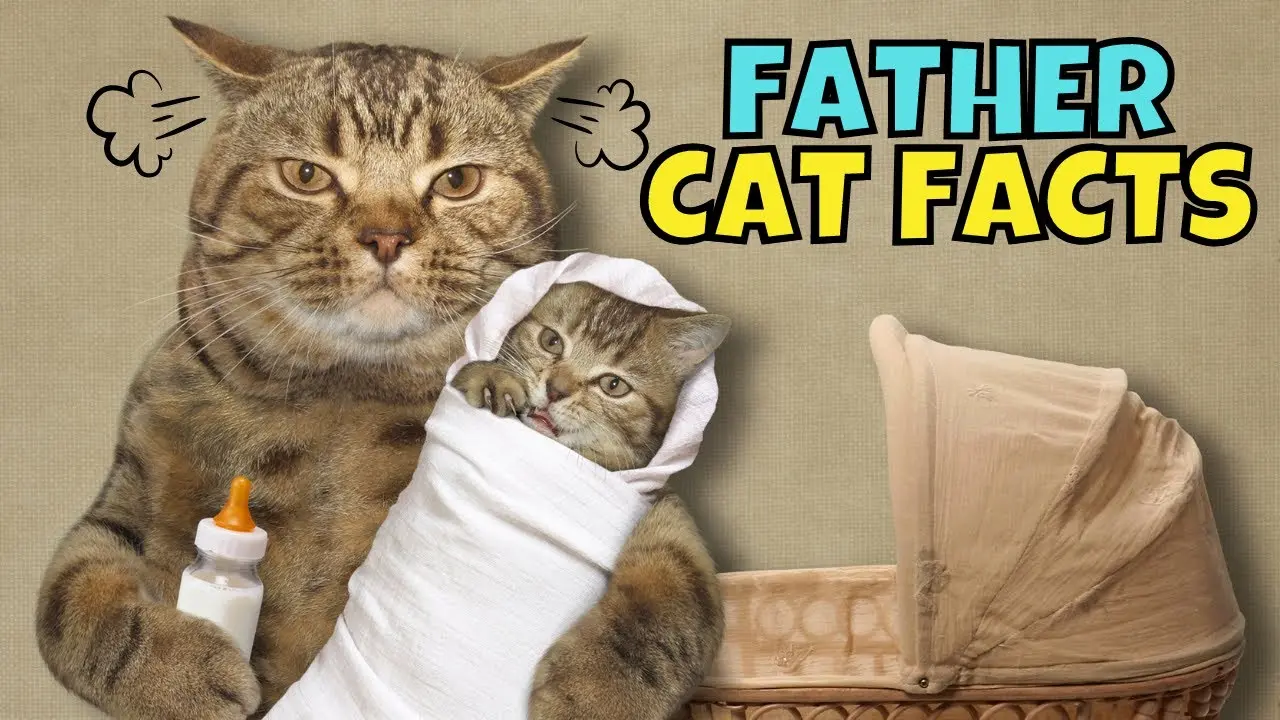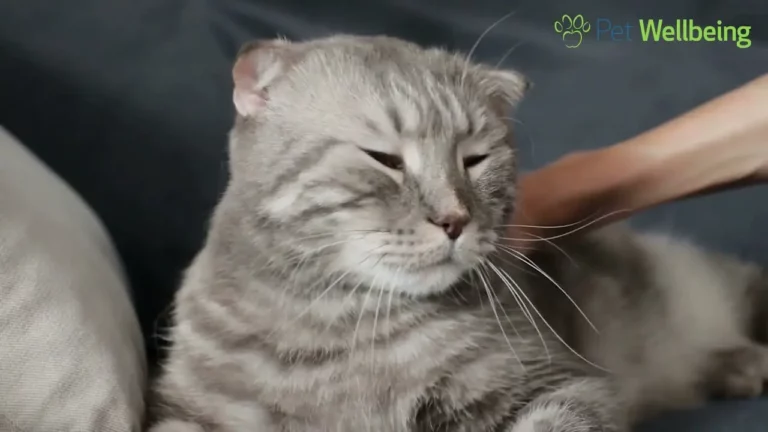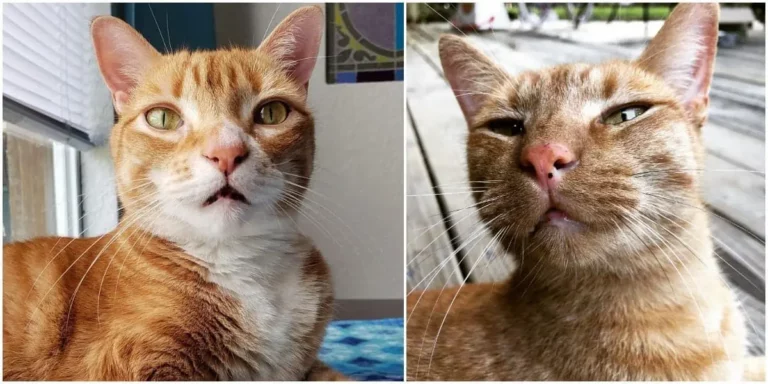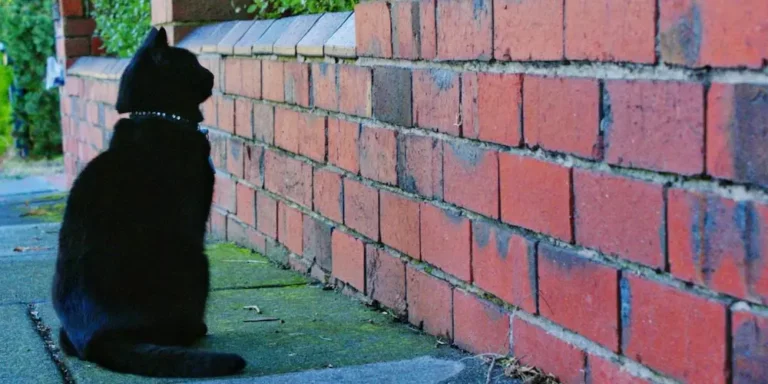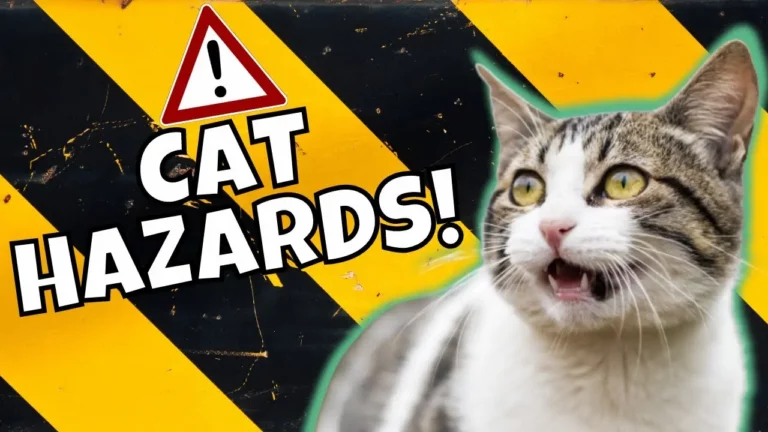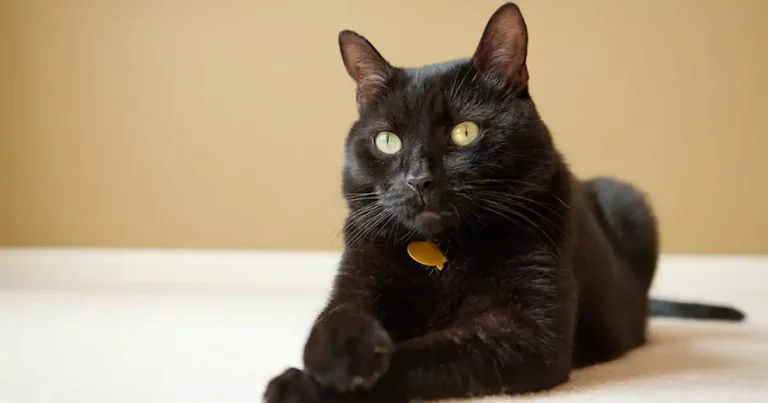10 Shocking Facts About Father Cats (#1 Is Crazy)
You might think you know everything about cats, but father cats have some surprising behaviors that will make you reconsider.
For instance, did you know they can be fiercely protective of their territory, often standing guard to guarantee the safety of their kittens?
It doesn’t stop there—these male
You’ll be intrigued by how their social bonding and playful interactions contribute to their kittens’ development. And if you think that’s surprising, wait until you hear the craziest fact about them. Intrigued yet?
Let’s explore more.
Territorial Guardians
Father cats are known for fiercely guarding their territory against intruders. You’ll often see them patrolling the boundaries of their domain, ensuring no other male cats encroach on their space.
This behavior is deeply rooted in their instincts; a father
By keeping rivals at bay, he guarantees that his offspring have a safer environment to grow up in, free from the threat of other males who might harm them.
When it comes to marking territory, father cats use a combination of scent marking and physical presence.
You’ll notice them rubbing their faces or bodies against objects, leaving a distinct scent that signals ownership.
They also spray urine in strategic locations, which serves as a potent warning to other cats.
These methods create an invisible boundary that other cats are usually reluctant to cross.
In addition, father cats may engage in vocalizations and aggressive displays to ward off intruders.
Hissing, growling, and even physical confrontations aren’t uncommon.
Their vigilance and protective nature play essential roles in maintaining the stability and safety of their territory.
Unusual Parenting Roles
While a father
Unlike the more independent stereotype of male cats, some tomcats actively participate in the upbringing of their kittens.
You’ll find that these paternal fathers sometimes take on roles typically associated with the mother
For instance, a father
This grooming not only keeps the kittens clean but also strengthens familial bonds, a critical element in their early development.
Additionally, you might notice the father
In some rare cases, father cats even assist in teaching their young how to hunt and play, essential skills for their survival. This hands-on approach challenges the idea that male cats are detached or uninterested.
Protective Instincts
Tomcats often exhibit strong protective instincts, ensuring the safety of their kittens from potential threats.
You might be surprised to learn that father cats can be quite vigilant when it comes to their young.
They often patrol their territory, looking out for any dangers that could harm their offspring.
This behavior isn’t just about vital protection; it’s also about teaching kittens how to recognize and respond to threats.
When a tomcat senses danger, he may position himself between the threat and his kittens, using his body as a shield. You’ll notice that he becomes particularly alert, ears perked, and eyes scanning the surroundings.
This heightened awareness helps kittens learn the importance of being cautious.
Additionally, tomcats sometimes engage in mock fights with their kittens.
These playful yet controlled interactions are more than fun; they serve as valuable lessons in defending themselves.
By practicing these behaviors, kittens develop the skills they’ll need to navigate their environment safely.
It’s fascinating to observe how natural instincts drive these protective behaviors.
The dedication father cats show in safeguarding their young highlights a side of parental care that’s often overlooked but vital for the survival and well-being of their kittens.
Social Bonding
Frequently, you’ll notice that tomcats actively engage in social bonding with their kittens, fostering strong familial connections. This behavior might surprise you, especially if you thought only mother cats were nurturing.
Tomcats often groom their kittens, and this act of licking isn’t just about cleanliness; it’s a way to build trust and show affection. Grooming helps the kittens feel secure and accepted within the family unit.
You’ll also see tomcats lying close to their kittens, providing warmth and a sense of safety. This physical proximity reinforces their bond and helps the kittens develop a sense of belonging.
Observing these interactions, you can clearly see that father cats play an essential role in the social development of their offspring.
Moreover, tomcats sometimes share their food with the kittens, teaching them about social sharing and communal living. This behavior underscores the tomcat’s role in fostering a cooperative family environment.
Playful Interactions
You’ll often observe father cats engaging in playful interactions with their kittens, which are important for their physical and mental development.
By gently batting their paws, pouncing, and even mock wrestling, father cats teach their kittens essential survival skills.
These playful sessions help kittens develop coordination, learn boundaries, and understand the dynamics of social interaction.
It’s not just about fun; these activities lay the groundwork for their future behavior and adaptability.
When you see a father
This tolerance helps the kittens build confidence and encourages them to explore their environment.
Playful interactions also strengthen the bond between the father and his kittens, fostering a sense of security and trust.
It’s important to recognize that these interactions aren’t just random bursts of energy.
They serve a deeper purpose, helping kittens learn how to interact with others, manage their instincts, and develop into well-adjusted adult cats.
So, when you see these playful moments, know that they’re a significant part of a kitten’s journey to adulthood.
Grooming Rituals
Father cats play an essential role in grooming their kittens, ensuring they stay clean and healthy.
You might be surprised to learn that male cats aren’t just aloof figures in the
This behavior helps strengthen the bond between father and kitten while teaching the young ones essential self-care skills.
When a father
This action stimulates the kittens’ circulation, promoting healthy skin and coat growth.
By watching their father, kittens learn the importance of regular grooming, a habit that will stick with them throughout their lives.
Additionally, grooming sessions offer more than just physical cleanliness.
They serve as a form of communication and comfort. When a father
Hunting Skills
When teaching their kittens how to hunt, male cats demonstrate essential skills and techniques through playful yet important exercises.
You’ll find that father cats play a significant role in preparing their young for survival.
They introduce their kittens to the art of stalking by moving slowly and quietly, showing them how to approach prey without being detected.
This method teaches the young ones patience and precision, both essential for successful hunting.
Father cats also engage their kittens in mock chases, which help develop their speed and agility.
By darting around and mimicking the movements of potential prey, these father cats give their kittens a safe environment to practice their reflexes and quick thinking.
Additionally, they might bring back small, live prey for their kittens to practice on, allowing them to experience the challenge of capturing and controlling a moving target.
These hands-on lessons aren’t just about catching food; they also instill confidence in the kittens.
The father
As you watch these interactions, you’ll notice how important the father
Teaching Techniques
Often, male cats use a combination of play and real-life scenarios to effectively teach their kittens essential survival techniques.
When you observe a father
These play sessions aren’t just for fun; they’re vital lessons in agility, stealth, and quick reflexes.
Father cats also take their kittens on short trips around their territory.
During these excursions, they expose the little ones to various environments and potential threats, teaching them to navigate and respond to different situations.
For example, a father
You’ll see him showing his kittens how to climb trees or hide in dense underbrush, providing them with practical survival skills.
In addition to these tactics, father cats often use their own bodies as obstacles for their kittens to practice on, enhancing their physical coordination and strength.
Complex Vocalizations
In addition to their teaching techniques, male cats use complex vocalizations to communicate with their kittens and convey important information.
These vocalizations aren’t just random sounds; they’re a sophisticated language that helps guide their young.
You might hear a range of noises, from gentle purrs to more assertive meows and even specific trills.
Each sound has a distinct purpose, whether it’s to call the kittens closer, warn them of danger, or reassure them during stressful situations.
When you observe a father
His vocal repertoire is surprisingly vast, and each type of vocalization can serve a unique function.
For instance, a soft purr can signal comfort and safety, encouraging kittens to relax and stay close.
On the other hand, a sharp, quick meow might be used to alert the kittens to potential threats or to stop undesirable behavior.
Understanding these vocalizations can deepen your appreciation for the complex relationships between father cats and their offspring.
It showcases just how much effort and care these often-underestimated paternal figures put into raising their young, ensuring they grow up well-adjusted and safe.
Emotional Sensitivity
Father cats display remarkable emotional sensitivity, often responding to their kittens’ needs with a heightened sense of awareness and care. You mightn’t expect it, but these male
They seem to understand when their kittens are distressed, stepping in to offer comfort through gentle nudges and grooming.
This behavior helps establish a strong bond and provides the kittens with a sense of security.
Interestingly, father cats can also sense changes in their kittens’ behavior and respond accordingly.
If a kitten is more adventurous and begins exploring its surroundings, the father might stay close to ensure safety.
Conversely, if a kitten is more timid, he might encourage it by staying nearby and offering reassurance.
This attentiveness highlights the father
Moreover, father cats often engage in play with their kittens, which isn’t just for fun.
Playtime helps teach the kittens important social and hunting skills.
By participating in these activities, male
Their emotional sensitivity and active involvement are vital for the kittens’ overall well-being.
Conclusion
You’ve seen how father cats are more than just important figures in the background. From guarding their territory to teaching hunting skills, they play vital roles in their kittens’ upbringing.
Their protective instincts, social bonding, and playful interactions are essential for the kittens’ development.
So, the next time you see a male
